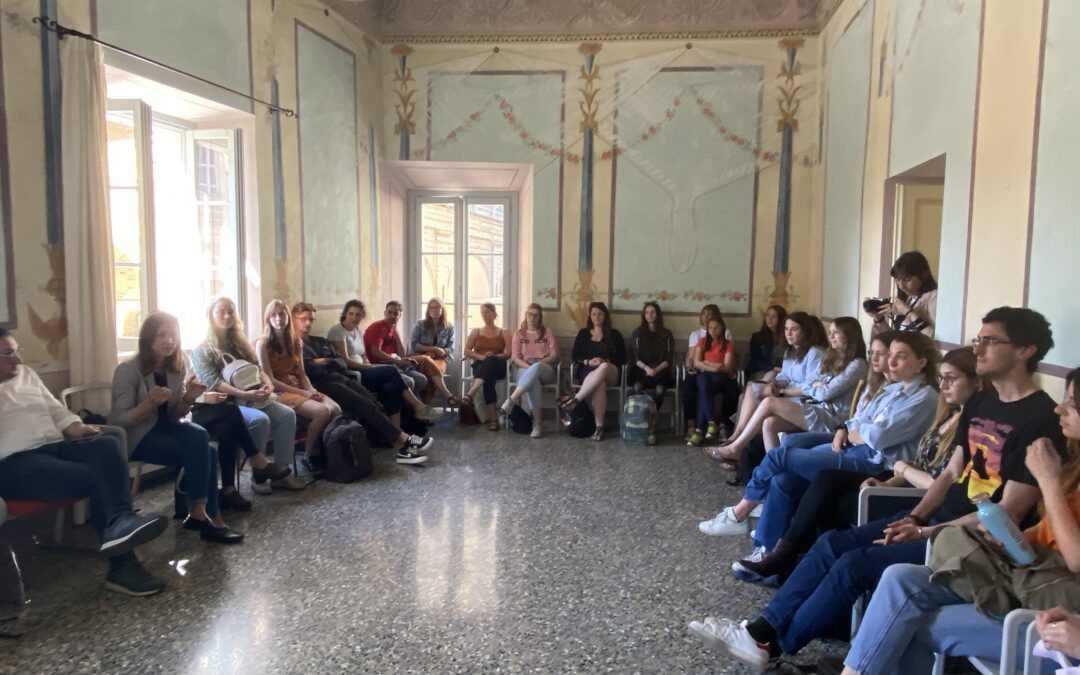The student-stakeholder dialogue is a knowledge-exchange format created by i-strategies to favour the dialogue between international university students and local stakeholders of the Marche region, Italy.
The concept. The knowledge-exchange dialogue is based on two pillars of the i-strategies education philosophy: 1) peer-to-peer learning approach. Students and stakeholders are, simultaneously, seekers and providers of knowledge; 2) place-based education. Place-based education (PBE) immerses students in local communities, allowing them to live an authentic experience of local context, highlighting the social impact of learning through participation in local projects.
The aim. The student-stakeholder dialogue aim is to have an authentic and informal dialogue between students and stakeholders. In the case of the International Summer School on Intangible Heritage, the German university students of the sustainable tourism faculty of Heilbronn University met a local wine entrepreneur and the tourism delegate of the Offida municipality. They discussed trends in eno-tourism, local policies for tourism promotion, tourism tendencies in the Marche region, and wine trends in Italy and abroad.
How it works. Based on international students’ interests, i-strategies will select local stakeholders to involve them in the knowledge exchange dialogue. The student-stakeholder dialogue is a face-to-face dialogue, in English, that takes around 90 minutes. Before the meeting, information about the participants (stakeholders’ profile, course/faculty of the university students, their topic of interest) is shared among the participants. In this way, wasting time introducing the participants at the beginning of the dialogue will not be necessary. The discussion starts with questions by students to stakeholders and then by stakeholders to students. A moderator is charged with introducing the student-stakeholder dialogue and making it inclusive, incentivizing all the participants to take the floor.
The result. The result is a bi-directional dialogue that enriches both sides of it. The university students will be able to meet face-to-face stakeholders and learn directly from their experiences. Stakeholders will have the chance to exchange with students receiving feedback and “fresh” ideas from them. Both will network, laying the foundations for further collaborations.
Download here the Students-stakeholders_dialogue_presentation of i-strategies.

